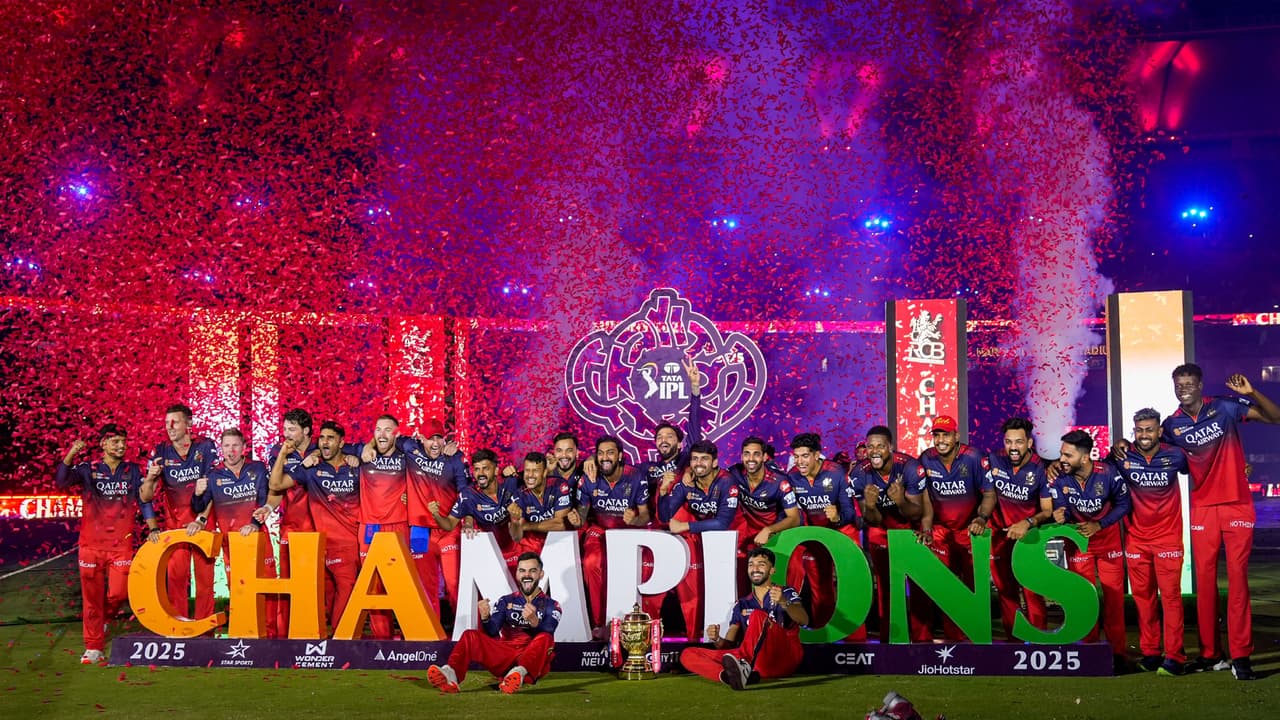Diageo has begun the sale of its Royal Challengers Bengaluru IPL & WPL franchises, calling it a “strategic review” of a non-core asset. The process is set to conclude by March 31, 2026, with major corporate groups reportedly eyeing the iconic team.
After months of speculation, it’s official — Royal Challengers Bengaluru (RCB), one of the Indian Premier League’s most followed franchises, is on the market. Diageo, the global beverage giant that owns both RCB’s IPL and WPL teams, has formally begun the process of selling the franchise.
In a disclosure to the Bombay Stock Exchange (BSE) on Wednesday, Diageo confirmed that a “Strategic Review” of its investment in Royal Challengers Sports Pvt Ltd (RCSPL) — the entity that operates RCB — is underway. The process, the company said, is expected to conclude by March 31, 2026.
Inside the Corporate Communication
The formal statement was made by United Spirits Ltd (USL), Diageo’s Indian subsidiary, and the holding company of RCSPL. According to the disclosure,
“USL is initiating a strategic review of the investment in its wholly owned subsidiary, RCSPL. RCSPL’s business comprises ownership of the Royal Challengers Bengaluru (RCB) franchise team that participates in the men’s Indian Premier League (IPL) and Women’s Premier League (WPL) cricket tournaments hosted by the Board of Control for Cricket in India (BCCI) annually.”
Scroll to load tweet…
The announcement was filed under Regulation 30 of the Securities and Exchange Board of India’s (SEBI) Listing Obligations and Disclosure Requirements (LODR). While the document was heavily technical, its message was clear — Diageo is preparing to step away from the cricket business it once saw as a glamorous brand extension.
“A Valuable but Non-Core Asset”
Confirming the decision, Praveen Someswar, Managing Director and CEO of USL, said:
“RCSPL has been a valuable and strategic asset for USL. However, it is non-core to our alcoholic beverage business. This step reinforces USL’s and Diageo’s commitment to continue reviewing its India enterprise portfolio to enable sustained delivery of long-term value to all its stakeholders, while keeping RCSPL’s best interest in mind.”
In simpler terms, Diageo is trimming what doesn’t align with its core focus — alcohol and beverages. The message also hints that while RCB has delivered brand value, it doesn’t directly contribute to the company’s bottom line.
What the Timeline Suggests
Perhaps the most telling detail in the disclosure is the completion date — March 31, 2026. For those familiar with corporate acquisitions, such a specific deadline signals that a deal may already be in advanced stages. Reports suggest that Diageo could be finalising negotiations with potential buyers before the end of the financial year.
It’s worth note that the language of the statement — “strategic review of investment” — gives Diageo room to explore both partial and complete divestment of its stake in RCB.
Who Could Take Over RCB?
According to earlier reports, multiple high-profile entities have shown interest in acquiring the franchise. Among those believed to be in the running are:
- A US-based private investment company
- The Adani Group
- The JSW Group (owned by the Jindal family)
- Adar Poonawalla of Serum Institute of India
- Ravi Jaipuria of Devyani International Group
While none of these names have been confirmed, all of them have both the financial muscle and the brand ambition to steer RCB into its next chapter.
A Sale Shadowed by Tragedy
The talk of RCB’s sale isn’t new — murmurs began intensifying after the June 4 stampede tragedy outside Bengaluru’s Chinnaswamy Stadium, where 11 fans lost their lives and several others were injured. The incident drew widespread criticism over the management of the event, further unsettling shareholders already questioning Diageo’s involvement in what they viewed as a non-core venture.
Since then, reports suggested that Diageo had quietly engaged a merchant bank to oversee the potential sale — a move that now appears to have reached its final stages.
What Lies Ahead
For RCB fans, this development may bring mixed emotions. While the ownership change marks the end of an era, it also opens the door for a new phase — one that could bring fresh investment, strategic direction, and possibly, long-awaited on-field success.
For Diageo, the sale marks a practical decision — a step back from the glamour of cricket to refocus on its core business priorities. But for Indian cricket, it marks another moment of transition, as one of its most iconic franchises prepares to change hands.
